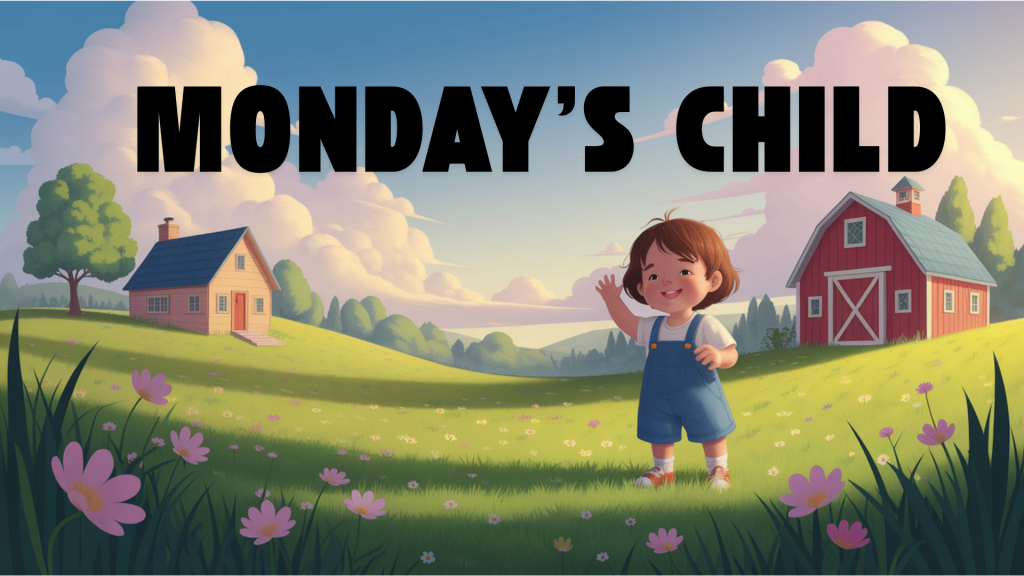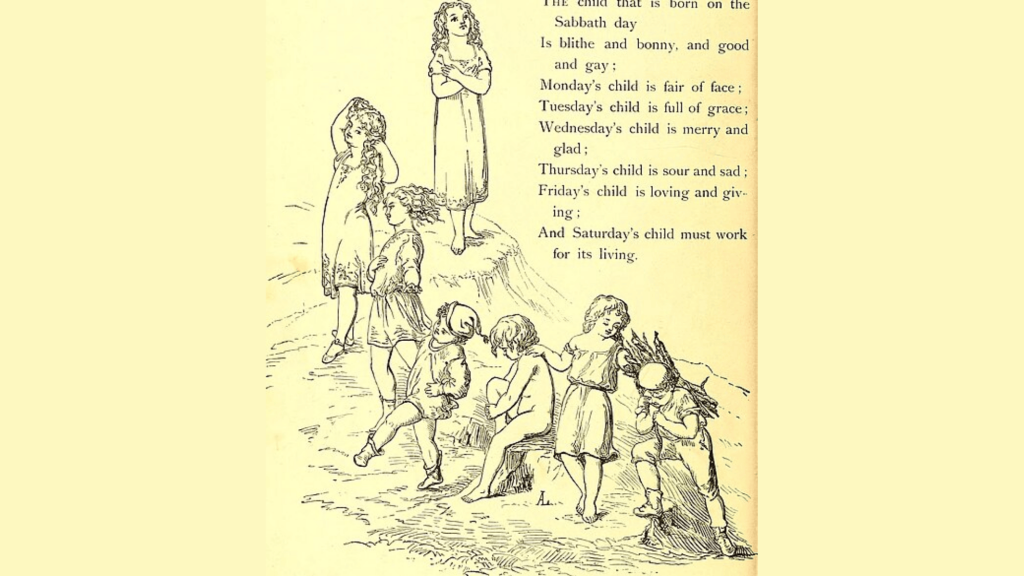Nursery rhymes are simple, catchy poems often sung or recited to young children, helping with language development.
They typically feature rhythmic patterns, repetition, and playful themes that engage kids.
These timeless verses also introduce children to the sounds and structure of language, making learning fun.
About the Rhyme
Monday’s Child is a classic nursery rhyme that assigns a personality trait to each day of the week, based on the day a child is born.
It has been passed down through generations and is often used to entertain and teach children about days and characteristics.
| Attribute | Details |
|---|---|
| Released | 1838 |
| Writers | Traditional |
Monday’s Child Lyrics

Monday’s child is fair of face
Tuesday’s child is full of grace
Wednesday’s child is full of woe
Thursday’s child has far to go
Friday’s child is loving and giving
Saturday’s child works hard for a living
But the child who is born on the Sabbath day
Is bonnie and blithe and good and gay
Similar Rhymes Like Monday’s Child
Here are a few nursery rhymes similar to Monday’s Child, each with its own rhythmic pattern and playful themes:
- This Little Piggy: This rhyme talks about the toes of a child, with each one going on a fun little adventure. It’s often used with young children to engage them during playtime.
- Ring A Ring O Roses: Rhyme features a circle game where children hold hands and dance in a ring. The rhyme is fun but has historical connections to past events, like the plague.
- Wheels On The Bus: A well-loved nursery rhyme about the different things that happen on a bus ride, with fun motions and sounds that children can sing and act out.
- Pat A Cake: Pat A Cake is a playful rhyme clapping game that encourages babies and toddlers to join in, creating interaction while learning about rhythm and coordination.
Frequently Asked Questions
Why are Nursery Rhymes Important for Children?
Nursery rhymes help children develop language skills, improve memory, and understand rhythm. They also foster social interaction and can teach cultural traditions and values.
Are Nursery Rhymes Just for Entertainment?
While nursery rhymes are entertaining, they also serve educational purposes. They help children with early literacy skills, language acquisition, and even social-emotional development through simple storytelling.
Where did Nursery Rhymes Originate?
Many nursery rhymes date back hundreds of years, originating in oral traditions. They have been passed down through generations, with some even having historical or cultural significance.
How Can I Use Nursery Rhymes to Teach My Child?
You can use nursery rhymes to teach your child about language sounds, word patterns, counting, and following simple instructions.





















